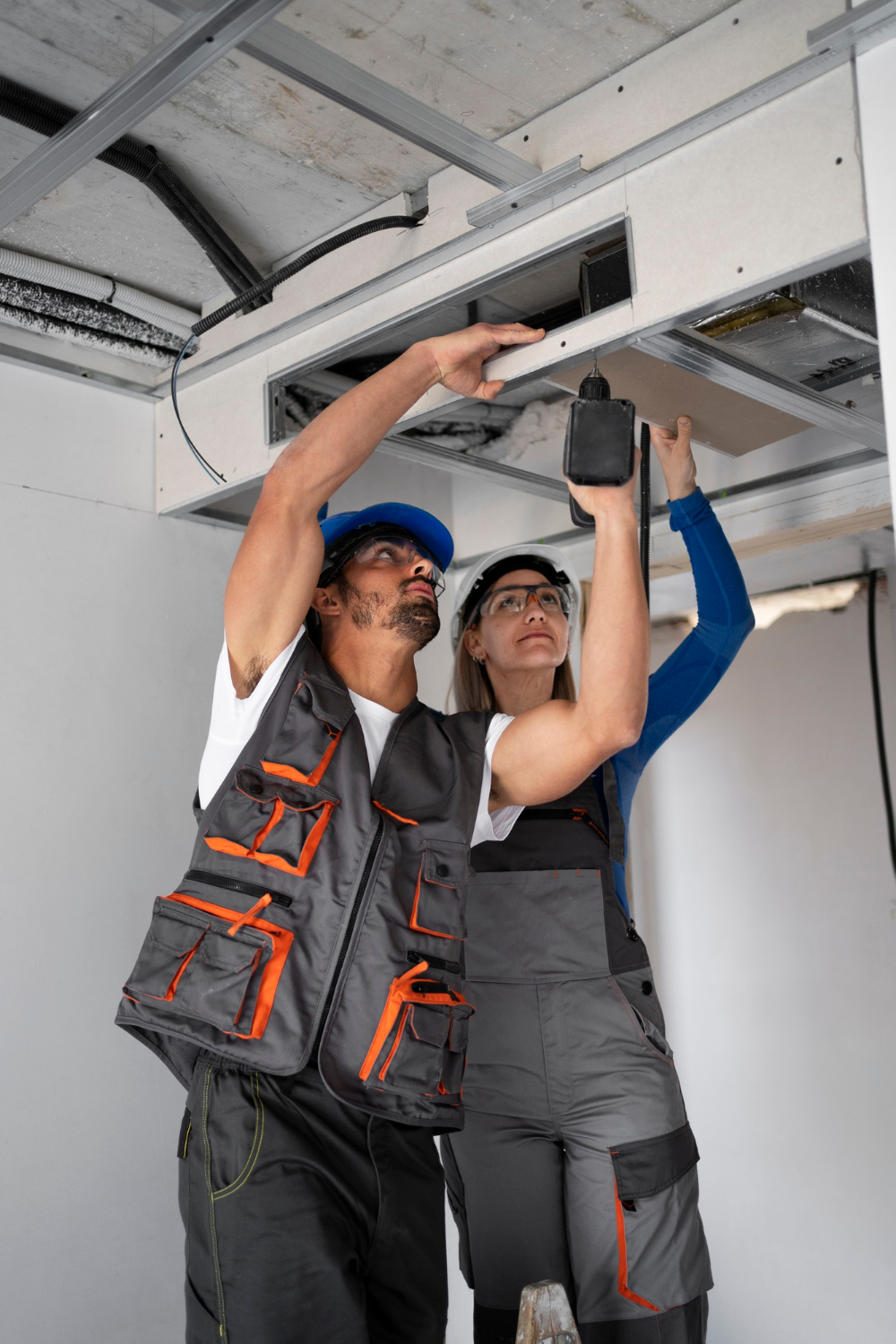Purchasing a new HVAC (Heating, Ventilation, and Air Conditioning) system is a significant investment for your home. It’s essential to select a system that meets your heating and cooling needs while also being energy-efficient, durable, and easy to maintain. To help you make an informed decision, here are seven crucial factors to consider when buying a new HVAC system.
1. Understand Your Heating and Cooling Needs
Before you shop for a new HVAC system, take time to understand your home’s heating and cooling requirements. Factors like the size of your home, local climate, and existing insulation can affect the efficiency and capacity you need.
A system that’s too small will struggle to maintain a comfortable temperature, while an oversized system may cycle on and off too frequently, leading to energy waste and wear and tear. It’s advisable to hire a professional to perform a load calculation to determine the appropriate size for your HVAC system. This ensures your home stays comfortable year-round without excessive energy costs.
2. Energy Efficiency Ratings
Energy efficiency should be a top consideration when buying an HVAC system. High-efficiency systems might have a higher upfront cost, but they can save you money in the long run by reducing energy bills.
Look for systems with the following ratings:
- SEER (Seasonal Energy Efficiency Ratio): Higher SEER ratings indicate better cooling efficiency. Modern systems often range from 14 SEER to 20 SEER or higher.
- AFUE (Annual Fuel Utilization Efficiency): This rating measures heating efficiency for furnaces. Aim for an AFUE of 90% or above for high efficiency.
- ENERGY STAR Certification: Systems with this certification meet or exceed energy efficiency standards set by the EPA.
Choosing an energy-efficient system can also reduce your environmental footprint.
3. System Type: Central vs. Ductless
You’ll need to decide whether a central HVAC system or a ductless mini-split system is the best fit for your home.
- Central HVAC Systems: These use ductwork to distribute air throughout your home. If you already have existing ductwork in good condition, this could be a cost-effective choice.
- Ductless Mini-Split Systems: These systems are ideal for homes without ductwork. They provide zoned heating and cooling, allowing you to control temperatures in individual rooms. While they’re typically more expensive upfront, they’re highly efficient and flexible.
If your home has existing ductwork, consider scheduling Air Duct Cleaning Services in Brigham City, Utah before installing a new central system. Clean air ducts improve airflow and indoor air quality, ensuring your new HVAC system works at peak efficiency.
4. Indoor Air Quality Features
Modern HVAC systems come with features that improve indoor air quality (IAQ), which is critical for maintaining a healthy living environment. Here are some features to consider:
- Air Filtration: Look for systems with high-quality air filters that can trap allergens, dust, and other pollutants.
- Humidity Control: Some systems include built-in humidifiers or dehumidifiers to maintain optimal humidity levels.
- Ventilation: Ensure the system provides adequate ventilation to remove stale air and introduce fresh air into your home.
To maximize indoor air quality, consider combining your new HVAC system with Air Duct Cleaning services. This will eliminate contaminants from your ductwork, allowing your system to deliver cleaner air.
5. Smart Thermostat Compatibility
Smart thermostats have become a popular addition to modern HVAC systems. These devices allow you to control your home’s temperature remotely using a smartphone app, helping you save energy and stay comfortable.
When choosing an HVAC system, ensure it’s compatible with smart thermostats. Features like programmable schedules, energy usage reports, and geofencing can significantly enhance convenience and efficiency. Smart thermostats can also integrate with home automation systems for seamless control.
6. Cost and Financing Options
HVAC systems can be a substantial investment, so it’s crucial to consider both the upfront cost and long-term expenses. Here are some key cost-related factors:
- Initial Cost: Compare prices from different manufacturers and contractors. While cheaper systems might be tempting, they could lack durability or efficiency.
- Operating Costs: Factor in energy consumption and maintenance costs over the system’s lifespan.
- Financing Options: Many HVAC companies offer financing plans, allowing you to spread the cost over time. Be sure to check interest rates and terms.
- Rebates and Incentives: Look for local utility rebates or tax incentives for purchasing energy-efficient systems.
7. Professional Installation and Maintenance
Even the best HVAC system won’t perform efficiently if it’s not installed correctly. Choosing a reliable HVAC contractor is crucial for ensuring proper installation and long-term performance. Here’s what to look for in a contractor:
- Experience: Choose a contractor with extensive experience in installing HVAC systems.
- Certifications: Look for certifications such as NATE (North American Technician Excellence).
- Reputation: Read reviews and ask for references to verify the contractor’s reliability.
Additionally, routine maintenance is essential for keeping your system running efficiently. Schedule regular check-ups and consider Air Duct Cleaning Services in Brigham City, Utah to maintain optimal airflow and extend the system’s lifespan.
Bonus Tips for HVAC Buyers
- Noise Levels: Check the decibel ratings of the HVAC system to ensure it operates quietly.
- Warranty: Review the warranty terms and coverage for parts and labor.
- Future Scalability: If you plan to expand your home, ensure the system can handle additional heating and cooling demands.
Conclusion
Investing in a new HVAC system is a decision that impacts your home’s comfort, energy efficiency, and air quality. By considering factors such as energy efficiency, system type, indoor air quality features, and professional installation, you can make an informed choice that meets your needs and budget..





Comments